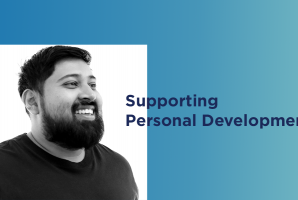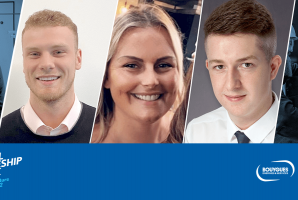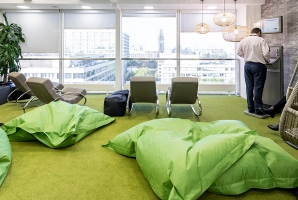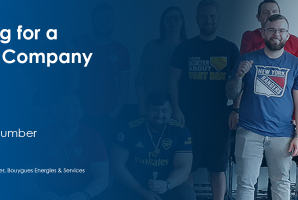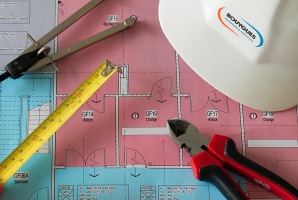News
A day in the life of a Process Engineer
Process engineering is one of the many specialisms we offer at Bouygues Energies & Services, with process engineering services often relied upon by clients in the pharmaceutical, life science and industrial biotechnology sectors. James Williams tells us about his role at BYES as a Process Engineer, operating across a range of fascinating industries, on projects with a great variety of applications.
So, what is it you do as a Process Engineer?
I’m responsible for the planning, implementation and optimisation of chemical, physical and biological processes, which are essential for the manufacture of products that we all use every day; drugs, medical devices, food ingredients and even fuel. This means that the majority of our clients come from the pharmaceutical, life science and energy sectors; all highly regulated industries with extremely sensitive processes and environments.
Most of these sectors require specialist process equipment, so a central aspect of my role is working with clients and suppliers to specify design requirements for items such as pumps, vessels and heat exchangers.
Delivering tailored solutions while remaining innovative and forward-thinking can be very challenging, but that’s what makes these projects so enjoyable. But working out ways to improve industrial efficiency for these processes is just half the challenge; we also maintain a strict focus on health & safety and environmental sustainability, ensuring all projects meet these requirements too. This can involve solutions for controlled environments where chemicals are used, methods for processes involving pharmaceutical ingredients, and even work within explosive atmospheres. All of this must be achieved efficiently and safely.
I joined BYES after an old colleague after being recommended the company by an old colleague who felt I would be a good fit for both the role and the organisation. That was 18 months ago and I haven’t looked back, I’m enjoying it.
Describe an average day for you…
The role is incredibly focused on detail so most days start with time in the office, assessing client specifications and modifying our designs. The objective is to design a solution that meets the client's requirements while still being safe and cost-effective. It is also important that we manage client expectations to ensure that the service they are receiving meets their business needs. This element of my job therefore requires plenty of communication with clients, partners and suppliers, who may be providing equipment for the project.
I also enjoy the problem-solving and creative aspects of my role; it’s great working with technical detail and using my creativity to meet briefs innovatively, as well as working closely with our own internal architects, electrical and mechanical engineers.
I typically visit a site at all stages of the project; in the outset to take the client’s brief, midway through to update the client on our proposal, and then at the build stage to help install and commission the equipment we have specified. Physically walking around a site is so important for the progress of a project, as it helps to visualise the processes currently in place. It can also inspire design ideas or highlight areas which need rethinking.
What is the culture and team like at BYES?
I’m really enjoying the role and environment here at BYES. I love the fact that despite the nature of our work in the department, the atmosphere is still very relaxed and people know how to have fun. I’m a firm believer in work-life balance and we have a great social crowd in the office. Everyone is keen to get involved in social activities, whether it’s after work drinks and food, or lunchtime clubs such as running or book club.
The Manchester office where I’m based has a good location in the heart of a lovely, bohemian part of the city. It makes for plenty of variety when choosing places to socialise after work.
The role itself is also extremely rewarding. I have been able to get involved in a wide range of project types which really interest me. Everything from biomass plants, to sites manufacturing heart grafts and food additives. I’m also now mentoring a younger graduate which is something I’ve always wanted to do.
What route did you take to get into this career and what is your advice for those who want to get into a similar role?
I realised quite early on that I enjoyed analytical and technical tasks with an element of problem-solving, so I was keen to embark on a degree that would lead me towards that line of work. I chose a Masters in Chemical Engineering at Swansea University.
From there I completed a process engineering internship and then moved into my first full-time engineering role. I’d advise those looking to follow a similar path to choose courses and universities with strong links to industry. Once you reach the workplace it is also important to find yourself a good mentor who can help guide you and provide insight on the best ways to approach different challenges and opportunities.
Bouygues Energies & Services consistently seek to break boundaries, delivering innovation in the process engineering world and beyond. We help clients discover more energy-efficient, sustainable manufacturing processes and we think our results speak volumes. From a pilot plant which is now being used for environmentally friendly glycidol production to a biorenewables development plant in association with GCCE, our expertise in scale-up and process solutions transforms our clients’ vision into a commercial reality.
To find out more about our process engineering careers and services, visit: https://www.bouygues-es.co.uk/join-us
Latest news
Find all the topics that make Bouygues Energies & Services news: projects, innovations, public and client events, partnerships, press releases ...
-
-
-
- Earlier this week we spoke to Jo Adams, one of our lead Interior Designers
- We see you as more than a number…
- What do our apprentices really think?
- with Geology graduate, Connor Cassley.
- with Interior Architecture and Design undergraduate, Hollie.
- Graduate Trainee, Chris Nicolaou, talks about his experience working in Procurement.


